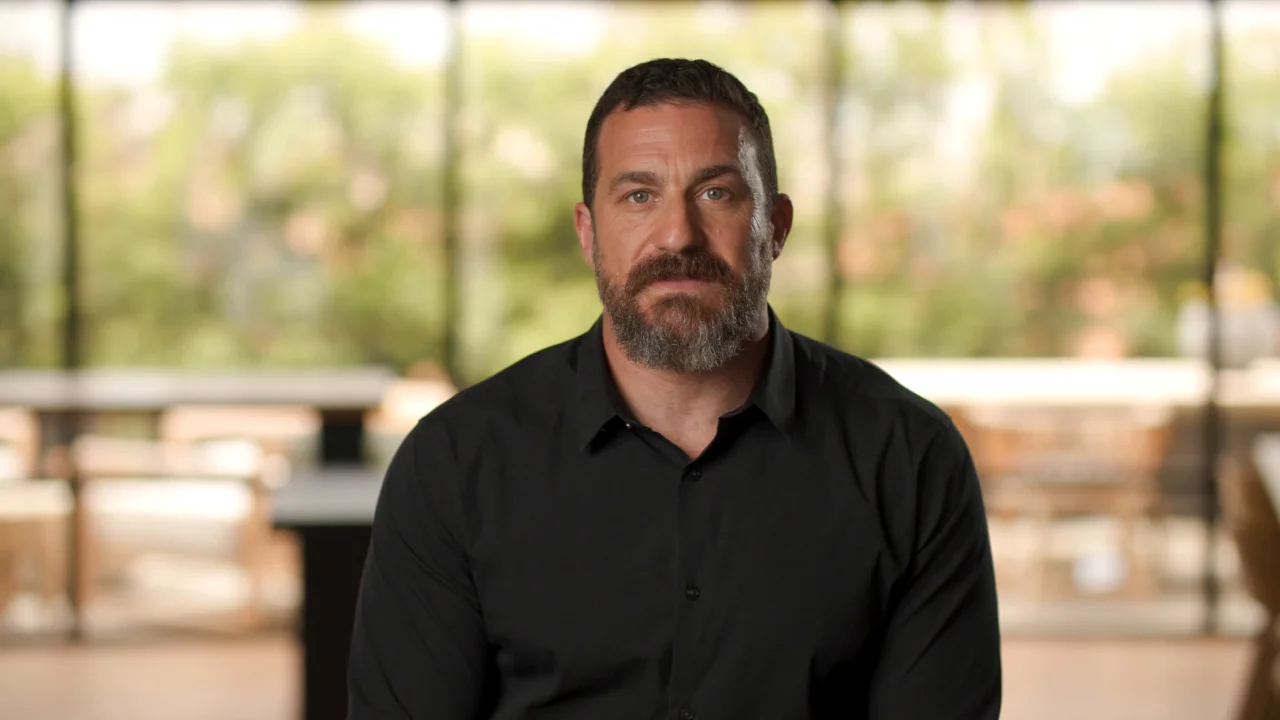
Creator and founder of breath~breaks. Discovered breath breaks after 7+ years of trying to integrate mindful practices into daily life.
Life today can feel like a marathon that never ends. Many of us carry tension in our shoulders, lie awake with racing thoughts, or feel on-edge without even knowing why.
This is the hidden cost of everyday stress – the background strain we often ignore until it fogs our focus, saps our energy, or frays our mood. Stress isn’t always loud or obvious; it often hums quietly in the mind and body, always “on” in the background. If you’ve ever wondered why you feel tired, irritable, or tense all the time, you’re not alone. In fact, nearly half of Americans report feeling frequent stress in their daily lives (Gallup). Stress has become so common that the World Health Organization even dubbed it the “health epidemic of the 21st century” (University of Southern California).
“Stress is the health epidemic of the 21st century” (WHO)
The good news: stress itself isn’t “bad” or something to feel guilty about. It’s a natural human response meant to help us handle challenges. A little stress can even be motivating, helping you meet a deadline or respond to a crisis. But when daily stress becomes a constant companion, it can start to weigh us down in invisible ways.
Let’s explore how everyday stress might be affecting you (often without you realising it), and more importantly, how to lighten that load with simple mindfulness habits.

Daily stress: is feeling stressed every day normal?
Everyone experiences stress to some degree – that’s completely normal. Work deadlines, traffic jams, paying bills, caring for family… these everyday challenges naturally trigger stress. In small doses, stress can sharpen your focus and give you energy to get through the day. However, feeling stressed every single day or constantly being tense is a sign that stress might be piling up too high. It’s as if your nervous system’s “alarm” is stuck in the on position.
Modern life is full of common daily stressors that can accumulate:
- The pressure of unrealistic workloads or long work hours
- Endless notifications and an “always-on” digital culture
- Social media and other addictive phone applications.
- Commuting through heavy traffic or crowded public transport
- Financial worries and the rising cost of living
- Juggling responsibilities at work and home with no downtime
It’s no wonder so many people feel tense all the time. Is it normal? Unfortunately, chronic daily stress has become very common – surveys show about 49% of people frequently feel stressed (Gallup) – but “common” doesn’t mean it’s healthy to live that way. When stress is a daily occurrence, our bodies and minds don’t get a chance to fully recover. Over time, this can leave us in a constant state of high alert, where we start to accept feeling on-edge, tired, or overwhelmed as just part of life.
Remember: It’s natural to feel stressed in truly challenging moments (like a job interview or an exam), and that stress usually passes once the situation is over (WHO). But if you’re always feeling wound up or anxious, it may be a sign that hidden stressors are stacking up day after day. In the next section, we’ll look at how to recognise those signs – especially the subtle ones that we often brush off.
Invisible signs of stress: How tension hides in plain sight
One of the tricky things about daily stress is that it often manifests in ways we don’t immediately label as “stress.” You might notice you’re having trouble sleeping or get frequent headaches. Maybe you snap at your partner over little things, or you just feel utterly drained and can’t focus at work. These can all be signs that stress is quietly taking a toll.
In fact, stress often makes it hard for us to relax and can bring a range of nagging symptoms. When we’re stressed we might become anxious or irritable, struggle to concentrate, get headaches or stomach upset, or have trouble sleeping (WHO). You might also notice changes in appetite (losing it or eating more than usual) or habits like fidgeting, tense muscles, or a racing heartbeat. Over time, some people withdraw from social activities or turn to unhealthy coping (like excess alcohol or junk food) without even realising they're responding to stress.
These signs of stress are sometimes invisible stress – they “quietly do their dirty work beneath your level of awareness” (precisionnutrition). You might just feel off or ask yourself, “What’s wrong with me? Nothing dramatic happened, so why do I feel so crummy?”. This is a classic clue that everyday stressors have been accumulating. Minor hassles like an overflowing email inbox, constant noise, or running late to an appointment may not seem like a big deal individually. But when enough of these silent stressors add up, your body and mind start to carry a heavy load of tension without a clear source.
Ask yourself: Do you often feel tightness in your neck or shoulders? Do you find it hard to switch off and relax, even during down time? Do small inconveniences easily irritate you lately? These could be your body’s way of signalling stress. Noticing these subtle stress signals is the first step to addressing them.

The Hidden Cost of Carrying Stress Every Day
Living with daily stress isn’t just an emotional burden – it has real costs on your health and well-being, even if they creep in gradually. When stress becomes a constant background noise, our bodies stay in a state of fight-or-flight much longer than they’re meant to. Over time, this can affect nearly every aspect of our health.
Physically, chronic stress can contribute to headaches and migraines, muscle tension and pain, digestive issues, and fatigue. You might get sick more often because stress can weaken the immune system. In the long run, stress that’s not managed can lead to serious health problems such as high blood pressure, heart disease, stroke, obesity, and diabetes (mayoclinic.org). Essentially, your body pays the price for being in overdrive all the time. You may also experience changes in your sleep patterns or sex drive as stress hormones disrupt the body’s natural balance.
Mentally and emotionally, the hidden cost is just as significant. Ongoing stress can make you feel anxious, restless, or depressed. It can sap your motivation and joy, making it tough to concentrate or find pleasure in things you used to enjoy. Research shows that persistent stress can even exacerbate mental health conditions like anxiety and depression (WHO). Over the years, many people under chronic stress start to feel burned out, emotionally exhausted, or detached. It’s as if the constant pressure dulls our ability to experience life fully, replacing enthusiasm with a sense of merely “getting by.”
There’s also a quieter cost: stress can strain our relationships and our performance. When you’re irritable and on-edge, small conflicts with loved ones can escalate. You might be physically present but mentally checked out during family time because your mind is preoccupied. At work, chronic stress might lower your patience and creativity, or lead to more mistakes. We often don’t realise stress is the culprit behind these issues. We might blame ourselves for not being “strong enough” or think something is wrong with us, when in fact it’s this invisible weight of stress dragging us down.
It’s clear that everyday stress can wear away at your well-being in ways that aren’t always obvious day-to-day. That’s why health experts worldwide are sounding the alarm. The empowering part is that once you recognise this, you can start taking steps to lighten the load. You can interrupt the stress cycle and prevent these hidden costs from piling up further. How? By intentionally creating moments of calm and resetting your stress response on a regular basis.
Lightening the Load: Mindfulness Habits to Ease Daily Stress
Everyday stress may be unavoidable, but you can change how it affects you by building simple mindfulness habits into your routine. Managing stress isn’t about eliminating every source of tension – it’s about giving your mind and body chances to reset and recover, even on a busy day. Think of these as small "pressure relief valves" throughout your day that prevent stress from overwhelming you.
One powerful technique is to use your breath. When you’re feeling wound up, pausing for a “breath break” can shift your nervous system from fight-or-flight mode into a calmer state.
For example, neuroscientist Andrew Huberman recommends a specific breathing pattern he calls the physiological sigh: take two short inhales through your nose, then one long exhale through your mouth, and repeat a few times. This simple exercise of making your exhale longer than your inhale can rapidly slow your heart rate and act like an “off switch” for your stress response (inc.com). The next time you notice anxiety rising or your heart racing, try this brief breath break – it’s surprisingly effective at bringing instant relief.
Building on breathing, there are many other mindfulness habits you can try. Here are a few science-backed strategies to cope with daily stress and lighten your mental load:
- Practice single-tasking: Give yourself permission to do one thing at a time. Constant multitasking can keep your mind in overdrive. This kind of mindful attention grounds you in the present moment and is a foundation of mindfulness.
- Take breath breaks to check in: A couple of times a day, pause and notice how you feel. Scan your body for areas of tension (tight jaw? hunched shoulders?) and take a few deep breaths to soften them. Briefly note your mood and thoughts without judgment (siumed.org). These small check-ins can prevent stress from snowballing.
- Move your body: Physical activity is one of the best stress relievers. It doesn’t have to be a full workout – a 10-minute walk outside, stretching at your desk, or a short dance break in your living room can work wonders.
- Stay connected: Don’t underestimate the power of talking to someone you trust. Sharing what you’re feeling with a friend, family member, or counselor can immediately make stress feel more manageable. Human connection lifts our mood and reminds us we’re not alone. Even a quick chat or a hug can lower stress hormones.
These small practices, done consistently, add up to a more resilient you. Over time, they train your body to recognize: it’s okay to relax. Mindfulness techniques like meditation or yoga are also excellent, but even if those aren’t your thing, simply cultivating moments of intentional calm (a quiet cup of tea, stepping outside to feel the fresh air, or doing a few stretches) can make a significant difference. When you make a habit of pausing and breathing, you’re not just managing stress in the moment – you’re building long-term resilience to it.
Start easily by taking breath breaks
At the end of the day, remember that you’re allowed to stop, to breathe, and to simply be.
The hustle of daily life can make us forget that taking care of ourselves is not a luxury, but a necessity. Every small step you take to acknowledge and ease your daily stress is a step toward a healthier, happier you. It’s okay to slow down. In fact, giving yourself those gentle pauses is often the very thing that makes you more effective when you get back to your tasks.
Why not start now? Take a slow, deep breath… and let it out. Feel even a hint of the tension release. That’s a breath break in action – a moment of calm you truly deserve. We built breath~breaks™ for moments just like this: to help you weave a rhythm of calm into your daily routine through simple breathing pauses.
Take a breath, and give yourself a break. Your mind, body, and spirit will thank you. You have the power to transform daily stress into daily mindfulness – one gentle breath at a time.
.png)

%402x%20(2).svg)






